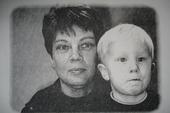Myspace Layouts at Pimp-My-Profile.com / Converse hearts
White_Rose, Never Give Up Let's Find a Cu... by DCopeland1965
Get this custom stamp at Zazzle
White_Rose, Never Give Up Le... - Customized by DCopeland1965
Get this custom stamp at Zazzle
This is the back of the Shirt.
The Front says "Lou Gehrig was the bast ball player ever" (see the back of my shirt)
Available in Men's. Womans & Childrens sizes
Lou Gehrig was the best ball player Ever!(See t... by DCopeland1965
Get this custom shirt at ZazzleHi I'm Dana,I am the ALS TDI Arkansas Ambassador. I lost my Dad to Lou Gehrig's disease on April 14th 1983, just 7 months after learning he was sick. I had turned 18 just 4 days before he died. He was only 44 years old, Younger than 3 of my siblings are now. I did not know what ALS was or that it was to strike my family again and again. I know now that me and my 5 siblings have a 50% chance of having ALS. Now it is my goal in life to "Never give up" To to educate, to learn, to fight, to donate, to find a Cure.
Please contact me at [email protected] if you have any ALS questions, want advice, need a friend or want to help.
I have 4 beautiful children youngest one by adoption ages 26, 25, 23 and 5 yrs old. Christopher 8-4-1981, Kimberley 8-13-1982 and Daniel My Cancer surviver 12-21-1984, and Joshua 1-6-2003 Mom Loves you all of you.
I am a Mustang Lover as you can see and own a 1966 Candy Apple Red Coupe with a HP 289. She is now being restored and will be ready to go again by Summer of 2008.
I grew up between Beautiful Eugene/Springfield Oregon and sunny southern California (San Dimas and Pomona) and now live in Lake City, AR where I will live forever, But wish as always I was back in Utah.
